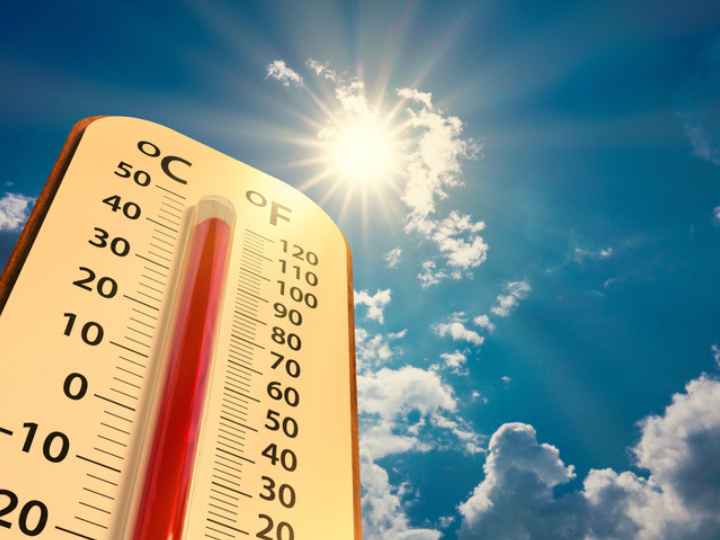In responding to a survey released today by University of Houston and Texas Southern University, respondents across the state voiced a range of opinions surrounding this summer’s harsh temperatures. But one adjective stood out above all others. When asked to choose a single word to describe the summer, more than 58% of respondents simply said hot. Next popular were heat and dry.
Which should surprise no one who went through this year’s summer in Texas. NASA’s Goddard Institute of Space Studies reported the summer of 2023 brought Earth’s highest temperature since recordkeeping started in 1880.

A deeper look into this report – Impact of Summer Heat Wave – uncovered a range of opinions on the realities of this unusually long span of harsh summer temperatures and steps needed to assure the people of Texas have the resources needed to get through the heat of future summers.
This new survey is part of the five-year Texas Trends Survey Series produced in a collaboration of the Hobby School of Public Affairs at UH and the Barbara Jordan-Mickey Leland School of Public Affairs at TSU.
It reports three-quarters (75.8%) of Texans describing summer 2023 as hotter than previous summers, and only one-fifth (20.5%) saying it was about the same.
“When divided by age, Texans older than 65 were most likely to say this summer was hottest. The youngest respondents, from 18 to 29, were the least likely to label this summer to be the hottest. More Hispanic households reported increases in monthly electric bills than whites, Blacks, Asians and others. These trends highlight the connection between extreme weather conditions and their effects on both health and the economy. The elderly are more susceptible to the adverse health impacts of extreme heat, while Hispanics tend to face greater economic vulnerability compared to other demographic groups,” said Agustín Vallejo, post-doctoral researcher at UH’s Hobby School and one of the lead authors of the survey.
The extreme temperatures hit many Texans in the wallet as most electricity bills bumped up. Two-thirds (66.3%) reported their electricity bills were higher this past summer than the year before. Slightly more than one-fifth (22.6%) said their bills were about the same.
“Those fluctuations in an electricity bill could be explained by two reasons – more usage or high rates,” said Gail Buttorff, lead author and associate director of the Center for Public Policy at UH’s Hobby School. “Some respondents believed their bill increased because they used their air conditioners more. But others pointed to higher electricity prices as the main factor.” Slightly more than a third of Texans (35.5%) attributed the rise to a combination – both higher usage and higher price per kilowatt-hour (kWh). Just under one-third (32.4%) believed it was higher usage alone.
“In dividing responses by age and ethnicity we see more clarity in the picture. Older residents were more likely to report higher bills than 18-to-29-year-olds,” said Michael O. Adams, professor of political science and founding director of the executive master of public administration program at TSU. “Hispanic survey participants more often reported higher bills, with 72.3% saying they saw increases over last year. Sixty-one percent of white, 64.7% of Black, 70.6% of other respondents reported their bills increased.
When it came to fighting back, Texans took a variety of measures to cut their energy use over the hot months. Those steps included:
- Turning off lights not in use (74.9%)
- Raising thermostat temperatures (40.2%)
- Replacing old lightbulbs with energy-efficient types (38.8%)
- Buying fans and other air circulators (22.2%)
This memorable summer weather offered more worries than just the heat, itself. Respondents said they, and people they know, also were affected by:
- Health effects related to the heat, experienced by 19.3% of respondents and 32.6% of their friends
- Drought, with 31.35% being affected directly and 28.7% having friends who were affected
- Flooding and destructive winds, followed by mosquito problems and tick-borne diseases
A little more than two-fifths (41.6%) said they see more worry in their communities about weather growing more extreme. Slightly more than a third of respondents (33.8%) said they noticed people taking active steps to protect their homes from extreme weather.
Surveys from the three years of the Texas Trend series, including the new Impact of Summer Heat Wave report, are available on the UH Hobby School website. Upcoming 2023 surveys in the series will examine views on electric vehicles and climate change.
The current survey was conducted between Oct. 6 and Oct. 18 in English and Spanish with 1,914 YouGov respondents 18 years of age and older, resulting in a margin of error of +/–2.93. The respondents were matched to a sampling frame on gender, age, race/ethnicity and education, and are representative of Texas adults.